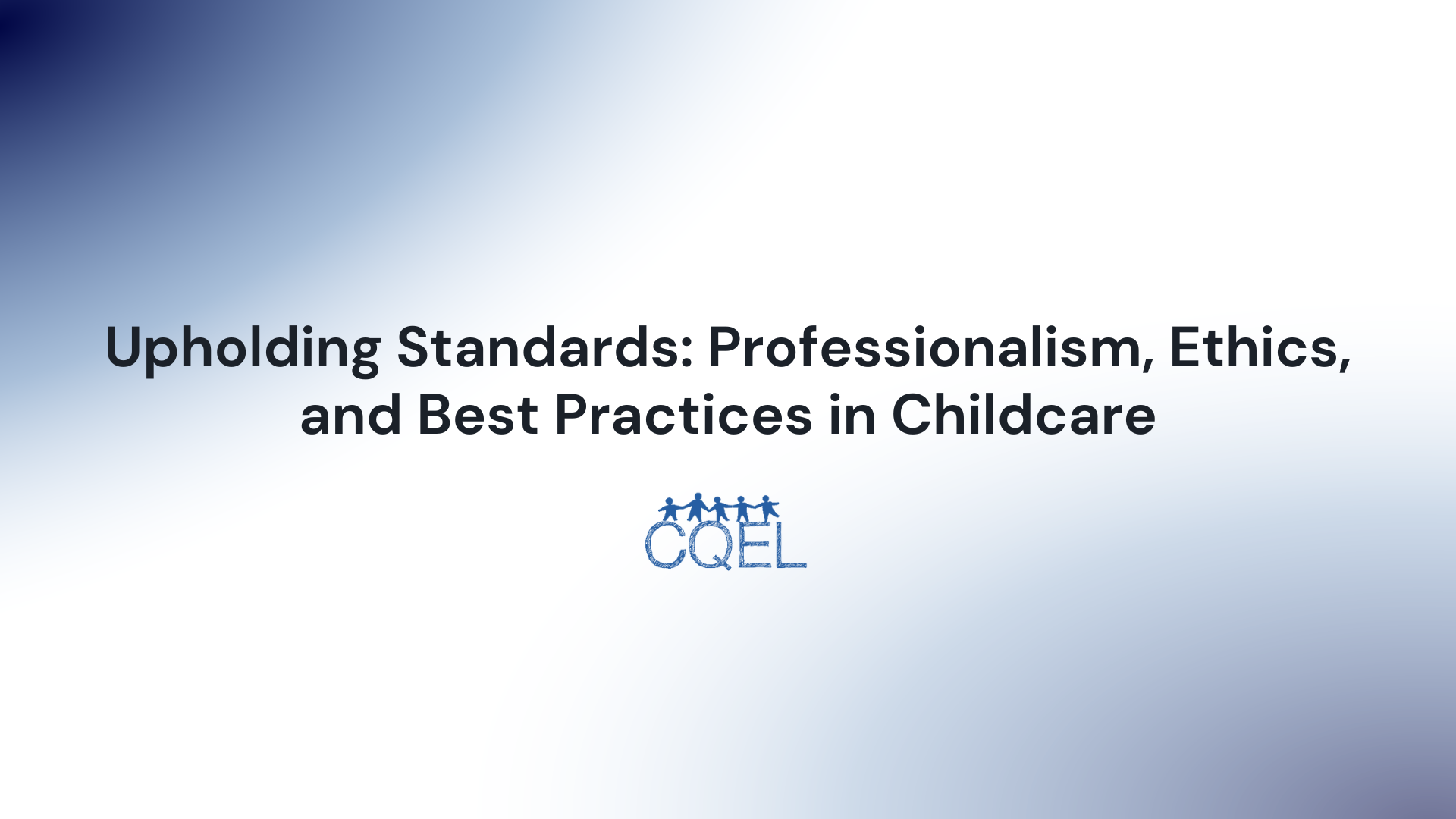Upholding Standards: Professionalism, Ethics, and Best Practices in Childcare
Professionalism in childcare encompasses many aspects, from qualifications and skills to ethical practices, a sense of responsibility, and nurturing positive relationships with children, families, and fellow professionals.

Professionalism in childcare encompasses a wide array of aspects, from qualifications and skills to ethical practices, a sense of responsibility, and nurturing positive relationships with children, families, and fellow professionals. In this article, we aim to underscore the critical components of professionalism within childcare and suggest effective strategies to incorporate them into your everyday practice.
Defining Professionalism in Childcare
Professionalism within childcare is marked by an amalgamation of responsibility, reliability, respect, ethical behavior, and continuous learning. It implies not only meeting but surpassing the baseline standards of care and education for children, ensuring confidentiality, acknowledging individual differences, and embarking on a journey of personal growth within the field. For instance, the Council for Professional Recognition's Child Development Associate (CDA) Competency Standards provide extensive guidelines defining childcare professionals' responsibilities and obligations.
Cultivating a Professional Attitude
A professional attitude in childcare demands the display of maturity, patience, and respect in every interaction. It also requires an unwavering commitment to the welfare and development of each child under your care. Such an attitude can be cultivated by consistently reflecting on your actions, remaining receptive to feedback, and striving for improvement.
Safeguarding Confidentiality
As a childcare provider, you often gain access to personal information about children and their families. Upholding privacy and ensuring confidentiality stands as a pivotal aspect of professionalism. It involves restricting discussions about children's progress or issues solely to their parents or guardians and refraining from sharing personal details without appropriate consent.
Continuous Learning and Professional Development
Childcare as a field is perpetually evolving, with frequent introductions of new research findings, policies, and methodologies. Staying updated and engaged by participating in workshops, training programs, and professional networks like the California Association for the Education of Young Children (CAEYC) can significantly elevate your professionalism.
Championing Children's Rights
Your role as a childcare professional extends to advocating for the rights and needs of children. This involves ensuring their safety and well-being in your care and actively voicing their needs to policymakers, community members, and other stakeholders.
Fostering Effective Communication
Professionalism within childcare also calls for efficient communication with children, families, and colleagues. Establishing clear, respectful, and timely communication can foster stronger relationships and circumvent potential misunderstandings.
In conclusion, professionalism in childcare is a complex concept requiring continuous learning, ethical standards, and prioritizing children's needs. By endeavoring to embody these qualities, childcare providers can remarkably enhance the quality of their services and make a lasting impact on the lives of children.
